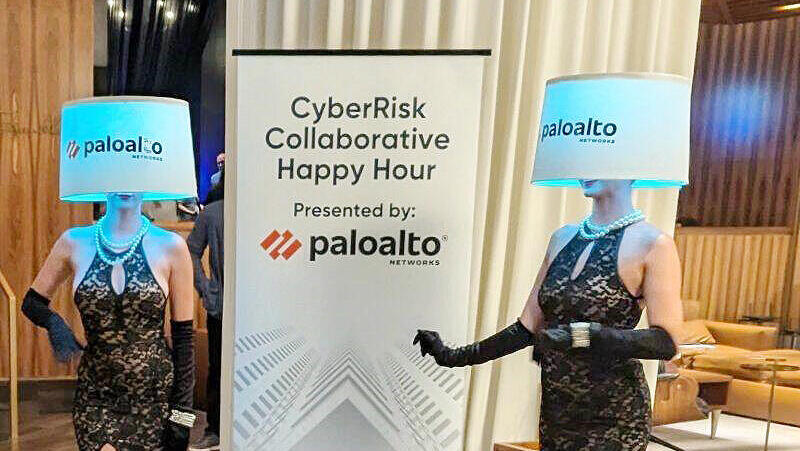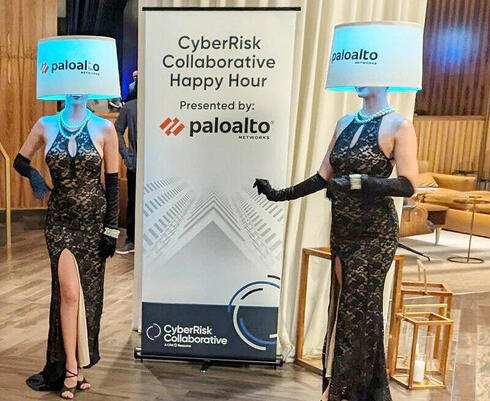
Palo Alto's 'lampshade ladies' spark outcry at cyber conference
CEO vows to learn from incident and take responsibility amid backlash over misogynistic marketing gimmick.
Cyber giant Palo Alto Networks, which has a market cap of around $110 billion, sparked criticism and public uproar after placing women with lampshades on their heads at the entrance to its booth at a cyber conference.
Many attendees at the annual Black Hat conference in Las Vegas took to LinkedIn to express their outrage at Palo Alto's decision to feature women dressed in black, tight-fitting evening dresses with Palo Alto-branded lampshades instead of heads.
The company, which has Israeli roots and was founded by Nir Zuk, was one of the main sponsors of the conference. This incident has reignited discussions about the tech industry's—and specifically the cyber sector's—lack of female representation, where the employment rates of men are significantly higher than those of women. Some posts revealed that women working at Palo Alto are hesitant to voice their concerns due to the "bro culture" that reportedly characterizes the company.
Palo Alto's marketing execs quickly apologized, but this did not suffice to quell the backlash, as critical posts continued to circulate, accusing Palo Alto of being stuck in the 1960s.
Related articles:
Nikesh Arora, CEO of Palo Alto, was compelled to issue a full letter of apology. In the letter, Arora not only apologized but also outlined the steps the company would take to prevent such an incident from happening again.
“I was saddened to see this picture as I returned last evening from a trip. This is unequivocally not the culture we support, or aspire to be. This is neither consistent with our values, nor in line with our actions and aspiration to support and celebrate women in Cybersecurity, and diversity across our business.
“I apologize for what has been perceived as a tone deaf response, I will remedy that today. While I do that, let me add my part.
“Ultimately the buck stops at me, and I will step up and take responsibility for this error on our part. I would like to assure you that we will double down and ensure this does not happen again, I would urge you and others to treat this like an isolated incident and not see this as something that Palo Alto Networks stands for.
“We have worked hard over the last 6 years to learn, try and create a respectful culture, a culture that prides itself on humility, respect and most importantly that respects, promotes and encourages diversity.”
